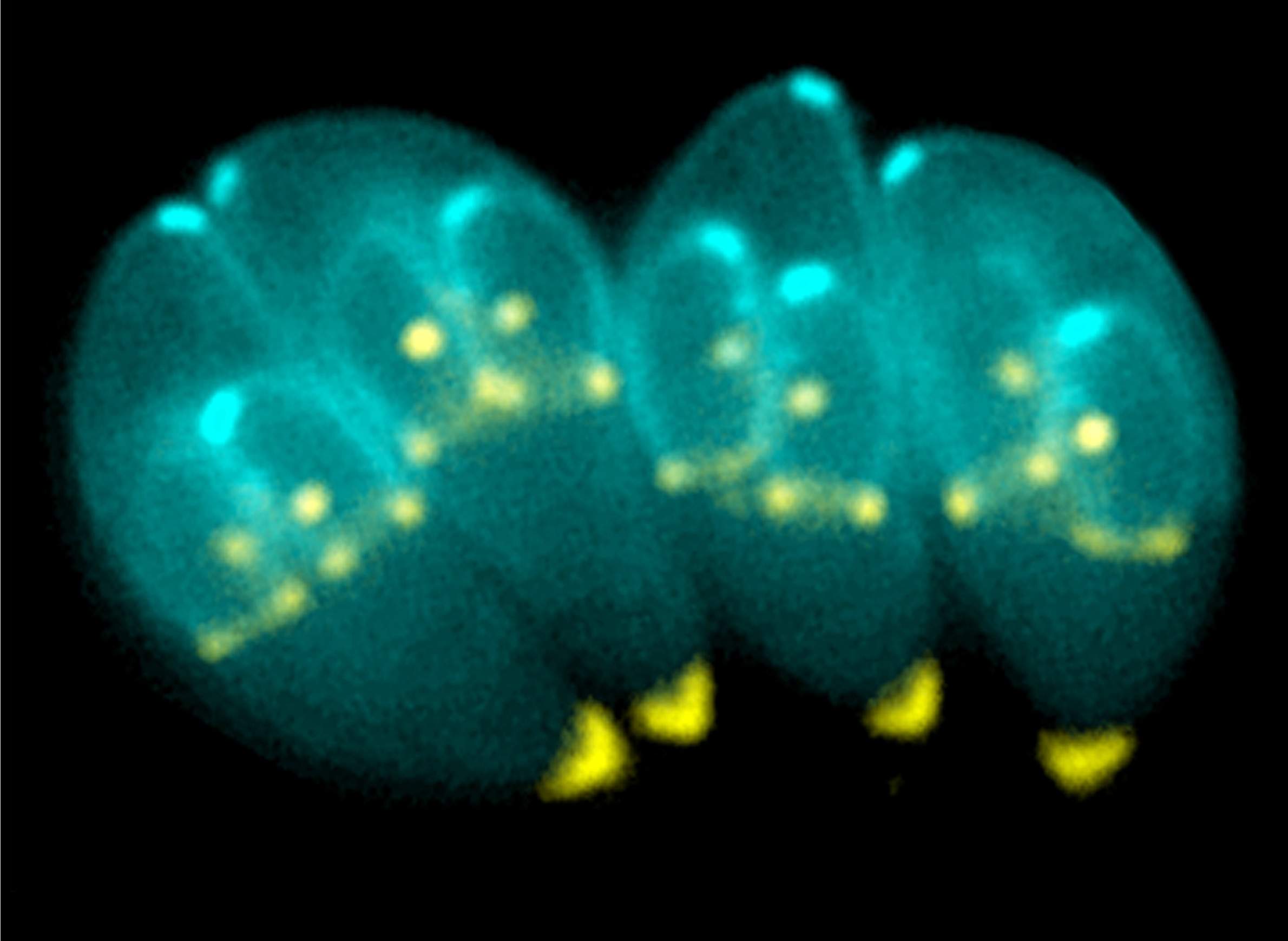
Toxoplasma gondii is a single-celled protozan parasite of humans.

Toxoplasma gondii is a single-celled protozan parasite of humans.
Biologists define parasitism as a relationship where one organism benefits in the course of taking advantage of another. By understanding how parasites prey on their hosts, medical researchers could develop some novel ways to fight disease. That's one idea Laura Knoll, an associate professor of medical microbiology and immunology at the University of Wisconsin-Madison, explores in her work with Toxoplasma gondii, the single-celled protozoan parasite best known for causing toxoplasmosis.
Knoll explained basic concepts of parasitism and symbiosis in a January 8, 2014 talk at the Wednesday Nite @ the Lab lecture series at UW-Madison, recorded for Wisconsin Public Television's University Place. Using T. gondii's relationship with cats and dependence of the malaria-causing protozoan genus Plasmodium on mosquitoes as examples, she shed light on the complex and varied life cycles of parasitic organisms. Knoll also discussed this biological information in the context of the billions of beneficial microorganisms that help humans and other multicellular organisms, including humans, carry out vital processes like digestion.
Focusing on on Toxoplasma, Knoll described how she and other researchers are trying to isolate specific proteins in the organism that can trigger specific immune responses in lab mice — and perhaps eventually in humans. By understanding how parasites can manipulate of the immune system, Knoll hopes to develop immunotherapies that can target antibiotic-resistant bacteria, or even temper the overactive immune responses that make many diseases even more dangerous.
Key facts
Key quotes